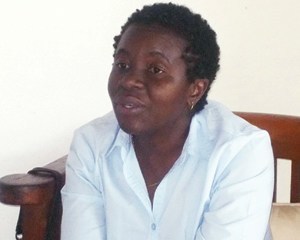
Fast-tracking of the Electoral Amendment Bill is an attempt by Zanu PF to imbed undemocratic tenets, ahead of the next elections in 2018, analysts have said.
By Moses Mugugunyeki
They said if President Robert Mugabe was indeed serious about having democracy in the country, he should not assent to the Bill which now awaits his signature before it becomes law.
Parliament recently passed the Electoral Amendment Bill without taking into consideration the input from the public and key stakeholders as provided in Section 41 (a) and (b) of the constitution and Orders No. 159 and No. 160 of Parliament’s Standing Rules.
MDC-T’s resistance in Parliament failed to stop Zanu PF from pushing the Electoral Amendment Bill.
Analysts warned that the Bill could prove to be a weapon for Zanu PF to thwart opposition in future elections.
Political analyst Ernest Mudzengi said Mugabe wants to consolidate his grip on the country through new autocratic laws calculated to keep him in power.
“The basic tenet of any democratic process is consultation. There should be wide consultation with ordinary citizens, stakeholders and civil society before coming up with such a Bill,” Mudzengi said.
“This law does not promote transparency in the conduct of elections and it will benefit Zanu PF only.”
The Jessie Majome-led parliamentary committee gathered public views countrywide before the Electoral Amendment Bill was tabled before Parliament. However, Zanu PF legislators who are the majority in the August House ignored the critical views from the public and key stakeholders.
Majome said the general sentiments from the public were that they wanted a piece of legislation that promotes free and fair elections. “From the public gatherings we had, most people wanted an Electoral Act that guarantees fair and free elections. They also wanted to have any election body that is independent and have access to the voters’ roll,” said Majome.
She said Zimbabweans squandered any opportunity to align the Electoral Act to the new constitution.
“Christmas comes once in a year and this was the only opportunity that we had to align this law to the new constitution.”
The Zimbabwe Election Support Network (ZESN) also raised concern over the manner in which the Bill was stampeded, saying it was “against the spirit of democratic policy making processes”.
“None of the written and oral submissions that ZESN and other civil society organisations made were considered,” said ZESN National Director Rindai Chipfunde-Vava.
She said Parliament should respect and promote the spirit of the new constitution.
“ZESN would have hoped that the alignment of the electoral law to the new constitution would have exhausted problematic electoral issues past and present that have been raised by stakeholders throughout the years.”
Dzimbabwe Chimbga of the Zimbabwe Lawyers for Human Rights (ZLHR) said the the electoral law left a lot to be desired.
“There were no amendments that were done to the electoral law to align it with the new constitution. Ignoring people’s views as provided in Section 141 (a) and (b) will only promote cosmetic law reform that will perpetuate the occurrence of elections that will continue to be contested in the country,” he said.
However, Chimbga feels Mugabe might be compelled not to assent the Bill like he did with the Non-Governmental Organisations (NGO) Bill. He said this could be done through engagement and advocacy.
“President Mugabe might consider not signing the Bill into law, just like he did with the NGO Bill,” said Chimbga. “Individuals who feel affected can also engage with the President over the issue and this might put him under pressure not to sign the Bill.”
ZESN expressed concern over the provision of the new electoral law which does not give ZEC the full responsibility of the voter’s registration and maintenance of the voters’ roll.
Zanu PF’s multi-pronged strategy was to silence dissent includes restricting diaspora voters and limiting access to voter education for the visually impaired and the deaf.











